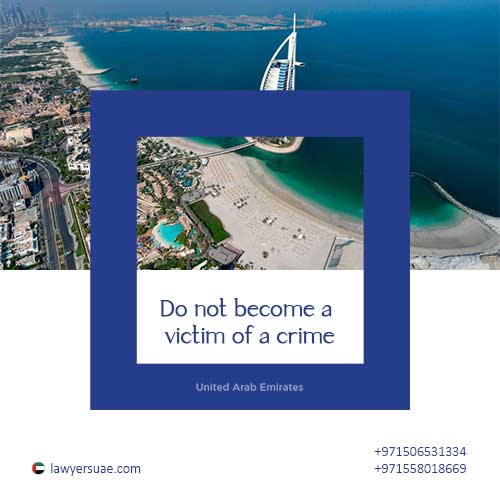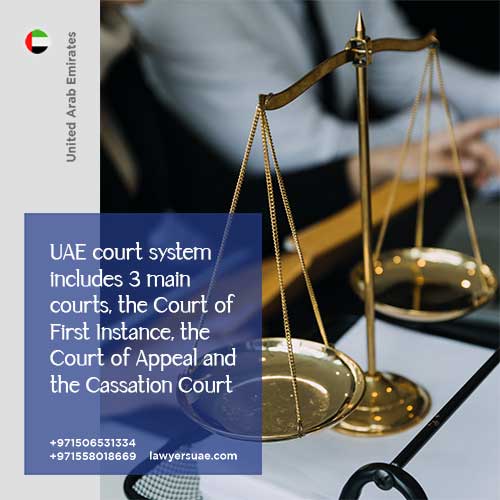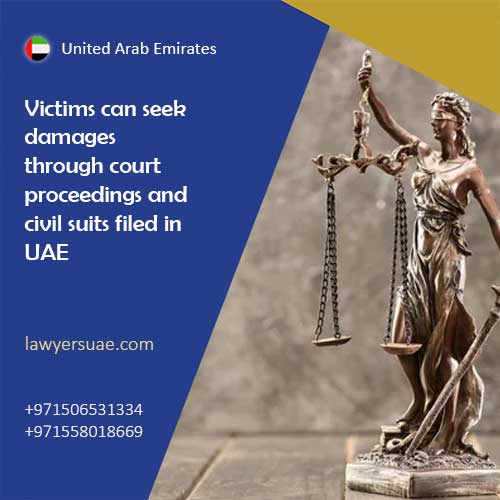The United Arab Emirates has established a comprehensive penal code that serves as the foundation for its criminal law. This legal framework plays a crucial role in maintaining law and order within the country while reflecting the cultural values and traditions of the UAE society. An understanding of the UAE’s penal code is essential for residents, visitors, and businesses operating in the nation to ensure compliance and avoid legal consequences. This article aims to provide a comprehensive guide to the criminal law of the UAE, exploring the key aspects and provisions outlined in the penal code.
What is The Main Criminal Law Governing The UAE?
The UAE Penal Code, officially known as the Federal Law No. 3 of 1987 on Issuance of the Penal Code, recently updated in 2022 with Federal Law No. 31 of 2021, is based on a combination of Sharia (Islamic law) principles and contemporary legal practices. In addition to Islamic principles, the criminal process in Dubai draws regulation from the Criminal Procedures Law No 35 of 1991. This law directs the filing of criminal complaints, criminal investigations, trial processes, judgments, and appeals.
Ciyaartoyda ugu waaweyn ee ku lug leh habka dembiilaha UAE waa dhibbanaha/cabashada, eedaysanaha/eedaysanaha, booliiska, xeer ilaalinta, iyo maxkamadaha. Maxkamadeynta dembiyadu waxay caadi ahaan bilaabataa marka dhibbanuhu ka xareeyo dacwad ka dhan ah eedaysanaha saldhigga booliiska deegaanka. Booliiska waxaa saaran waajib ah in ay baaraan dembiyada lagu soo oogay, halka Xeer-ilaalintu ay eedaysanaha ku eedaynayso maxkamad.
Nidaamka maxkamadaha Imaaraadku waxa uu ka kooban yahay saddex maxkamadood oo waaweyn:
- Maxkamadda Darajada Koowaad: Marka dhawaan la xareeyo, dhammaan dacwooyinka dambiyada waxay yimaadaan maxkamaddan. Maxkamaddu waxay ka kooban tahay hal garsoore oo dacwada dhageysanaya oo xukunta. Si kastaba ha ahaatee, saddex garsoore ayaa dhageysanaya oo go'aaminaya kiiska dacwad dambi ah (taas oo xambaarsan ciqaab adag). Ma jirto wax gunno ah oo loogu talagalay maxkamadaynta xeerbeegtida heerkan.
- Maxkamadda RacfaankaKaddib marka ay maxkamadda darajada koowaad soo saarto xukunkeeda, labada dhinac midkood waxa uu racfaan u qaadan karaa Maxkamadda Racfaanka. Fadlan ogow in maxkamaddani aanay dib u maqlin arrinta. Kaliya waa in la go'aamiyo haddii uu jiro qalad xukunka maxkamadda hoose.
- Maxkamadda Cassation-ka: Qof kasta oo aan ku qanacsanayn xukunka Maxkamadda Racfaanka waxa uu racfaan dheeraad ah u qaadan karaa Maxkamadda Cassation-ka. Go'aanka maxkamadan waa kama dambays.
Haddii lagu helo dembi, fahamka Habka Racfaanka Dambiyada ee UAE waa lama huraan. Qareen rafcaan dembiilayaal ah oo khibrad leh ayaa kaa caawin kara aqoonsiga sababaha rafcaanka looga qaadan karo xukunka ama xukunka.
What are the key principles and provisions of the UAE’s Penal Code?
The UAE Penal Code (Federal Law No. 3 of 1987) is based on a combination of Sharia (Islamic law) principles and contemporary legal concepts. It aims to maintain law and order while preserving the cultural and religious values of the UAE society, as per the general principles outlined in Article 1.
- Principles Derived from Sharia Law
- Prohibitions on activities like gambling, alcohol consumption, illicit sexual relations
- Hudud crimes like theft and adultery have Sharia-prescribed punishments e.g. amputation, stoning
- Retributive “eye for an eye” justice for crimes like murder and bodily harm
- Contemporary Legal Principles
- Codification and standardization of laws across emirates
- Clearly defined crimes, penalties, statutory limitations
- Due process, presumption of innocence, right to counsel
- Qodobbada Muhiimka ah
- Crimes against state security – treason, terrorism, etc.
- Crimes against individuals – murder, assault, defamation, honor crimes
- Financial crimes – fraud, breach of trust, counterfeiting, money laundering
- Cybercrimes – hacking, online fraud, illegal content
- Public safety, moral crimes, prohibited activities
The Penal Code blends Sharia and contemporary principles, though some provisions face human rights criticism. Consulting local legal experts is recommended.
Criminal Law vs Criminal Procedure Law in the UAE
Criminal Law defines the substantive rules that establish what constitutes a crime and prescribe the punishment or penalty to be imposed for proven offenses. It is covered under the UAE Penal Code (Federal Law No. 3 of 1987).
Dhinacyada muhiimka ah:
- Categories and classifications of crimes
- Elements that must be proven for an act to qualify as a crime
- The punishment or sentence corresponding to each crime
For example, the Penal Code defines murder as a criminal offense and specifies the punishment for someone convicted of murder.
Criminal Procedure Law, on the other hand, establishes the procedural rules and processes for enforcing the substantive criminal laws. It is outlined in the UAE Criminal Procedure Law (Federal Law No. 35 of 1992).
Dhinacyada muhiimka ah:
- Powers and limitations of law enforcement in investigations
- Procedures for arrest, detention, and charging an accused
- Rights and protections afforded to the accused
- Conducting trials and court proceedings
- The appeals process after a judgment
For instance, it lays down rules for collecting evidence, the process of charging someone, conducting a fair trial, and the appeals mechanism.
While criminal law defines what a crime is, criminal procedure law ensures those substantive laws are implemented properly through an established judicial process, from investigation to prosecution and trials.
The former outlines legal consequences, the latter enables enforcement of those laws.
Kala soocida Dambiyada iyo Dambiyada ee sharciga dambiyada UAE
Kahor intaanad gudbin cabasho dembi, waa lama huraan inaad barato noocyada dembiyada iyo dembiyada hoos yimaada sharciga UAE. Waxaa jira saddex nooc oo dembiyada waaweyn iyo ciqaabtooda:
- Xadgudubyada (xadgudubyada): Tani waa qaybta ugu adag ama dembiga yar ee dembiyada UAE. Waxay ka mid yihiin fal kasta ama fal kasta oo soo jiidanaya ciqaab ama ciqaab aan ka badnayn 10 maalmood oo xadhig ah ama ganaax ugu badnaan 1,000 dirham.
- Dhaqan xumo: A misdemeanor is punishable with confinement, a fine of 1,000 to 10,000 dirhams at most, or deportation. The offence or penalty may also attract Diyat, lacag Islaami ah oo ah "lacag dhiig".
- Dambiyada: Kuwani waa dambiyada ugu adag marka loo eego sharciga Imaaraadka, waxaana lagu ciqaabayaa ugu badnaan xabsi daa'im, dil, ama Diyat.
How Are Criminal Laws Enforced in The UAE?
Criminal laws in the UAE are enforced through the combined efforts of law enforcement agencies, the public prosecution, and the judicial system, as outlined in the UAE Criminal Procedure Law. The process typically begins with an investigation conducted by police authorities upon receiving information about a potential crime. They have the power to summon individuals, collect evidence, make arrests, and refer cases to the public prosecution.
The public prosecution then reviews the evidence and decides whether to press formal charges or dismiss the case. If charges are filed, the case proceeds to trial in the relevant court – the Court of First Instance for felonies and misdemeanors, and the Court of Misdemeanors for lesser offenses. Trials are overseen by judges who evaluate the evidence and testimonies presented by the prosecution and defense.
After the court issues a judgment, both the convicted person and the prosecution reserve the right to appeal to higher courts like the Court of Appeal and then the Court of Cassation. The enforcement of final verdicts and sentences is carried out through the police, public prosecution, and the prison system in the UAE.
What is The Process For Reporting A Crime in The UAE?
When a crime occurs in the UAE, the first step is to file a complaint with the police at the nearest station, preferably close to where the incident took place. This can be done either orally or in writing, but the complaint must clearly detail the events that constitute the alleged criminal offense.
The police will have the complainant provide their statement, which is recorded in Arabic and must be signed. Additionally, UAE law allows complainants to call witnesses who can corroborate their account and lend credibility to the allegations. Having witnesses provide supplementary context can greatly aid the subsequent criminal investigation.
Once a complaint is filed, the relevant authorities commence an investigation to verify the claims and attempt to identify and locate potential suspects. Depending on the nature of the crime, this could involve legal officers from the police, immigration officials, coast guards, municipality inspectors, border patrol, and other law enforcement agencies.
A key part of the investigation is interrogating any identified suspects and taking their statements. The suspects also have the right to present their own witnesses to support their version of events. Authorities collect and analyze all available evidence such as documents, photos/videos, forensics, and witness testimony.
If the investigation finds sufficient evidence of a criminal act, the public prosecutor then decides whether to press formal charges. If charges are filed, the case proceeds to the UAE courts as per the Criminal Procedure Law.
At this stage, those looking to pursue a criminal case against another party should take certain steps in addition to the police complaint:
- Obtain a medical report documenting any injuries
- Gather other evidence like insurance records and witness statements
- Consult an experienced criminal defense lawyer
If the prosecutor moves forward with charges, the complainant may need to file a civil lawsuit to have the criminal case heard in court.
Waa Noocdee Dembiyada La Soo Sheegi Karaa?
Dambiyada soo socda ayaa loo sheegi karaa booliiska UAE:
- Dilkii
- dil
- Kufsi
- Gardaro galmo
- Xaraash
- xatooyada
- Fadeexad
- Kiisaska la xiriira gaadiidka
- Been-abuur
- Been-sheegashada
- Dambiyada Daroogada
- Dembi kasta ama fal kasta oo kale oo ku xadgudba sharciga
Dhacdooyinka la xidhiidha badbaadada ama dhibaataynta, booliiska waxa si toos ah loogala xidhiidhi karaa Adeegooda Aman 8002626 ama SMS ahaan 8002828 Bogga booliska Abu Dhabi ama laan kasta oo ka tirsan Waaxda Dembi-baarista (CID) ee Dubai.
What Are The Procedures For Criminal Investigations And Trials in The UAE?
Criminal investigations in the UAE are governed by the Criminal Procedure Law and overseen by the public prosecution. When a crime is reported, the police and other law enforcement agencies conduct an initial investigation to gather evidence. This can involve:
- Questioning suspects, victims, and witnesses
- Collecting physical evidence, documents, recordings etc.
- Conducting searches, seizures, and forensic analysis
- Working with experts and consultants as needed
The findings are presented to the public prosecution, who reviews the evidence and decides whether to press charges or dismiss the case. The Public Prosecutor will invite and separately interview the complainant and suspect to ascertain their stories. At this stage, either party may produce witnesses to verify their account and help the Public Prosecutor determine if a charge is necessary. Statements at this stage are also made or translated into Arabic and signed by both parties. If charges are filed, the prosecution prepares the case for trial.
Criminal trials in the UAE take place in the courts under the purview of judges. The process typically involves:
- The charges being read out by the prosecution
- The defendant entering a plea of guilty or not guilty
- The prosecution and defense presenting their evidence and arguments
- Examination of witnesses from both sides
- Closing statements from prosecution and defense
The judge(s) then deliberate in private and issue a reasoned judgment – acquitting the defendant if not convinced of guilt beyond reasonable doubt or issuing a conviction and sentence if they find the defendant guilty based on the evidence.
Both the convicted person and prosecution have the right to appeal to higher courts against the judgment or sentence. The appeals courts review the case records and may uphold or overturn the lower court’s decision.
Throughout the process, certain rights such as presumption of innocence, access to legal counsel, and standards of evidence and proof must be upheld as per UAE law. Criminal courts handle cases ranging from minor offenses to serious crimes like financial fraud, cybercrimes, and violence.
Suurtagal ma tahay in la daba galo kiis dembiyeed haddii aan la heli karin dembiilaha?
Haa, waa suurtogal in lagu daba galo kiis dembiyeed xaaladaha qaarkood, xitaa haddii dembiilaha aan la heli karin. Ka soo qaad in dhibbanuhu uu urursaday caddaymo muujinaya sida loo dhaawacay oo uu keeni karo dukumeenti cad oo ku saabsan goorta iyo goobta uu shilku ka dhacay. Markaas, waxaa suurtogal ah in la sii wado kiis dembiyeed.
What Are The Legal Rights Of Victims Under UAE’s Criminal Law?
The UAE takes measures to protect and uphold the rights of crime victims during the legal process. Key rights afforded to victims under the UAE Criminal Procedure Law and other regulations include:
- Right to File a Criminal Complaint Victims have the right to report crimes and initiate legal proceedings against perpetrators
- Rights During Investigation
- Right to have complaints promptly and thoroughly investigated
- Right to provide evidence and witness testimony
- Right to participate in certain investigative measures
- Rights During Trial
- Right to access legal counsel and representation
- Right to attend court hearings unless excluded for reasons
- Right to review/comment on evidence submitted
- Right to Seek Damages/Compensation
- Right to claim compensation from perpetrators for damages, injuries, medical expenses and other quantifiable losses
- Victims can also seek reimbursement for travel and other expenses but not for wages/income lost due to time spent attending court proceedings
- Rights Related to Privacy, Safety and Support
- Right to have identities protected and kept confidential if required
- Right to protection measures for victims of crimes like human trafficking, violence etc.
- Access to victim support services, shelters, counseling and financial aid funds
The UAE has established mechanisms for victims to claim damages and compensation through civil lawsuits against perpetrators. Additionally, victims have the right to legal assistance and can appoint lawyers or have legal aid assigned. Support entities also provide free advice and counsel.
Overall, UAE laws aim to safeguard victims’ rights to privacy, prevent re-victimization, ensure safety, enable compensation claims, and provide rehabilitation services during the criminal justice process.
Waa maxay Doorka Qareenka Difaaca ee Dacwadaha Ciqaabta?
Qareenka difaacaya ayaa mas'uul ka ah difaaca dambiilaha maxkamadda dhexdeeda. Waxa laga yaabaa inay ka doodaan caddaymaha uu soo bandhigay xeer ilaaliyuhu oo ay ku doodaan in dembiilaha la sii daayo ama la dhimo xukun.
Waa kuwan qaar ka mid ah waajibaadka uu qareen dambiile ka ciyaaro kiisaska dembiyada:
- Qareenka difaacaya waxaa laga yaabaa inuu ku hadlo magaca dembiilaha marka la joogo dhageysiga maxkamadda.
- Haddii kiisku ku dhammaado xukun, qareenku wuxuu la shaqayn doonaa eedaysanaha si loo go'aamiyo xukunka ku habboon oo uu soo bandhigo xaalado khafiifin si loo yareeyo xukunka.
- Marka aad kala xaajoonayso gorgortanka qirashada xeer ilaalinta, qareenka difaacaya waxa laga yaabaa in uu soo gudbiyo talada xukunka la dhimay.
- Qareenka difaacaya ayaa mas'uul ka ah in uu matalo eedaysanaha marka la dhageysanayo xukunka.
Waa maxay Doorka caddaynta dambiilaha ee kiisaska dambiyada?
Caddaynta dambi baarista ayaa inta badan loo adeegsadaa kiisaska dambiyada si loo ogaado xaqiiqada dhacdada. Tan waxa ku jiri kara caddaynta DNA-da, faraha faraha, caddaymaha ballistics, iyo noocyada kale ee caddaynta sayniska.
Waa maxay Doorka Booliisku ku leeyahay Kiisaska Dambiyada?
Marka cabashada la soo sheego, booliisku waxa ay u gudbin doonaan waaxaha ay khusayso (waaxda daawaynta dambiilayaasha, waaxda dambiyada elektaroonigga ah, iwm.) si ay dib u eegis ugu sameeyaan.
Booliisku waxa ay dabadeed cabashada u gudbin doonaan xeer ilaalinta, halkaas oo xeer ilaaliye loo samayn doono in uu dib u eego sida uu qabo xeerka ciqaabta ee Imaaraadka.
Booliisku waxa ay sidoo kale baari doonaan cabashada oo ay ururin doonaan cadaymaha si ay u taageeraan kiiska. Waxa kale oo laga yaabaa inay qabtaan oo xidhaan dembiilaha.
Waa maxay Doorka Xeer Ilaaliyaha ee Dacwadaha Ciqaabta?
Marka cabashada loo gudbiyo xeer ilaalinta guud, xeer ilaaliye ayaa loo xilsaarayaa inuu dib u eego. Dacwad oogaha ayaa markaas go'aansan doona in dacwad lagu oogo iyo in kale. Waxa kale oo laga yaabaa inay doortaan inay joojiyaan kiiska haddii ay jiraan caddayn ku filan oo taageeraya.
Xeer Ilaaliyaha ayaa sidoo kale kala shaqeyn doona booliiska si loo baaro cabashada iyo aruurinta cadeymaha. Waxa kale oo laga yaabaa inay qabtaan oo xidhaan dembiilaha.
Waa maxay Doorka Qareenka Dhibanaha ee Kiisaska Dambiyada?
Dembiilaha waxaa laga yaabaa in lagu xukumo oo lagu amro inuu bixiyo magdhowga dhibbanaha xaaladaha qaarkood. Qareenka dhibbanaha ayaa maxkamadda kala shaqayn doona inta xukunka lagu ridayo ama ka dib si uu u ururiyo caddaynta si loo go'aamiyo in dembiilaha uu leeyahay awood dhaqaale oo uu ku magdhabo dhibbanaha.
Qareenka dhibbanaha waxa kale oo laga yaabaa inuu u doodo dacwadaha madaniga ah ee ka dhanka ah dembiilayaasha.
Haddii lagugu eedeeyay inaad dembi gashay, waa lama huraan inaad raadsato adeega qareen dembiile. Waxay awood u yeelan doonaan inay kaala taliyaan xuquuqdaada oo ay kugu metelaan maxkamadda.
How Does The UAE’s Criminal law Handle Cases Involving Foreigners Or Visitors?
The United Arab Emirates enforces its comprehensive legal system equally on citizens and non-citizens for any criminal offenses committed within its borders. Foreign nationals, expatriate residents, and visitors are all subject to the UAE’s criminal laws and judicial processes without exception.
If accused of a crime in the UAE, foreigners will go through arrest, charges, and prosecution via the local courts where the alleged offense occurred. Proceedings are in Arabic, with translation provided if needed. The same standards of evidence, legal representation provisions, and sentencing guidelines apply regardless of one’s nationality or residency status.
It’s crucial for foreigners to understand that actions acceptable elsewhere may constitute crimes in the UAE due to differences in laws and cultural norms. Ignorance of the law does not excuse criminal behavior.
Embassies may offer consular assistance, but the UAE maintains full authority over prosecution of foreign defendants. Respecting local laws is a must for visitors and residents alike.
Moreover, foreigners should note that they may face detention during investigations, with pre-trial procedures and rights to understand. Court cases can also experience lengthy delays impacting one’s stay. Uniquely, double jeopardy principles from other nations may not apply – the UAE could retry someone for an offense they faced prosecution for elsewhere previously.
Kawaran Haddi Dhibbanuhu Dal Kale Joogo?
Haddii dhibbanuhu aanu ku sugnayn UAE, waxa laga yaabaa inay weli bixiyaan caddaynta lagu taageerayo kiis dembiyeed. Tan waxa lagu samayn karaa iyadoo la isticmaalayo shir-fiidyow, kayd online, iyo hababka kale ee caddayn-ururinta.
How Can One Check The Status Of A Criminal Case Or Police Complaint in The UAE?
The method for tracking the progress of a criminal matter or police complaint filed in the United Arab Emirates varies based on the emirate where the case originated. The two most populous emirates, Dubai and Abu Dhabi, have distinct approaches.
Dubai
In Dubai, residents can utilize an online portal created by the Dubai Police force that allows case status checks by simply entering the reference number. However, if this digital service is inaccessible, alternative contact options like:
- The police call center
- Website/app live chat
Abu Dhabi
On the other hand, Abu Dhabi takes a different route by offering a dedicated case tracking service through the Abu Dhabi Judicial Department’s website. To use this, one must first register for an account using their Emirates ID number and date of birth before gaining access to view case details online.
Talooyin guud
No matter which emirate is involved, retaining the specific case reference number is vital for any online inquiry about its status and progress.
If the digital options are unavailable or experiencing technical difficulties, directly contacting either the original police station where the complaint was filed or the judicial authorities overseeing the case can provide the necessary updates.
It’s important to note that while these online tracking services aim to increase transparency, they are still evolving systems that may encounter limitations periodically. Traditional channels of communication with law enforcement and the courts remain reliable alternatives.
How Does the UAE’s Criminal Law Handle Arbitration or Alternative Dispute Resolution?
The UAE criminal law system primarily deals with prosecution of criminal offenses through the court system. However, it does allow for arbitration and alternative dispute resolution methods in certain cases before formal charges are brought.
For minor criminal complaints, police authorities may first attempt to resolve the matter through mediation between the parties involved. If a settlement is reached, the case can be closed without proceeding to trial. This is commonly used for issues like bounced cheques, minor assaults, or other misdemeanors.
Binding arbitration is also recognized for certain civil matters that have criminal implications, such as labor disputes or commercial conflicts. An appointed arbitration panel can render a decision that is legally enforceable. But for more serious criminal allegations, the case will go through the standard prosecution channels in the UAE courts.
Why Do You Need A Local Specialized And Experienced Criminal Lawyer
Facing criminal charges in the United Arab Emirates demands specialist legal expertise that only a local, seasoned criminal lawyer can provide. The UAE’s unique legal system, blending civil and Sharia laws, requires in-depth knowledge that comes from years of experience working within its judicial processes. A lawyer based in the Emirates understands the nuances that international practitioners may overlook.
More than just comprehending the laws, a local criminal lawyer serves as an invaluable guide for navigating the UAE’s courts. They are well-versed in the protocols, procedures and dynamics of the justice system. Their linguistic proficiency in Arabic ensures accurate translation of documents and clear communication during hearings. Aspects like these can be critical advantages.
Additionally, UAE lawyers with established careers often possess connections, reputation and a deep cultural understanding – assets that can benefit a client’s case strategy. They grasp how the society’s customs and values interplay with the laws. This context informs how they construct legal defenses and negotiate for favorable resolutions with authorities.
From managing different criminal charges to handling evidence properly, a specialized local criminal lawyer has honed tactics specific to the UAE Courts. Their strategic representation draws from direct experience uniquely relevant to your situation. While all legal counsel is important when accused, having an advocate deeply ensconced in UAE criminal law can make a pivotal difference.
Haddii lagu baaray, lagu xiray, ama lagugu soo oogay dambi gudaha Imaaraadka Carabta, waxaa lama huraan ah in la helo qareen fahmaya shuruucda dalka. Sharcigaaga nala tashada waxay naga caawin doontaa inaan fahanno xaaladaada iyo welwelkaaga. Nala soo xidhiidh si aad u ballansato kulan. Hadda naga soo wac Ballanta iyo Kulanka Degdega ah +971506531334 +971558018669





